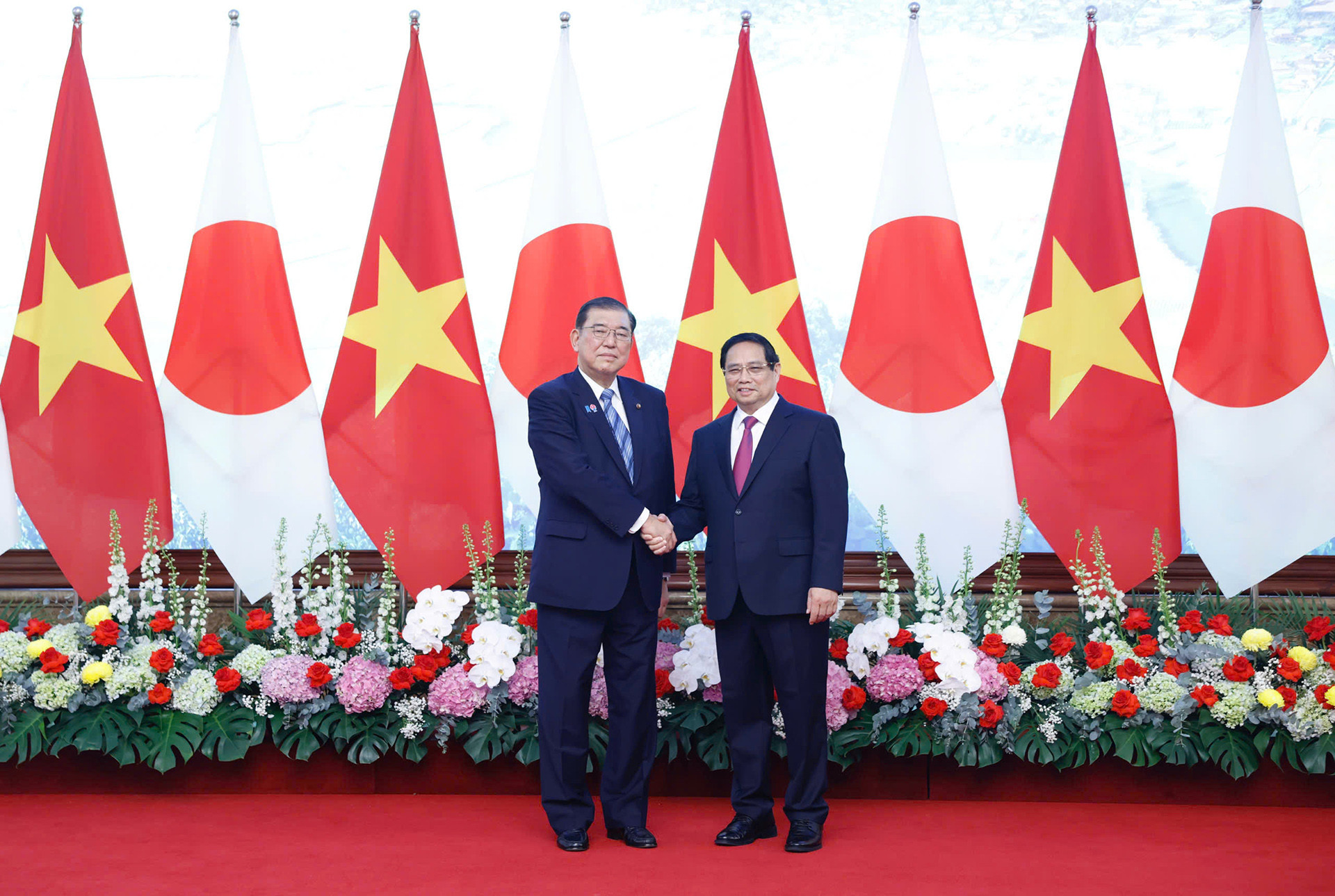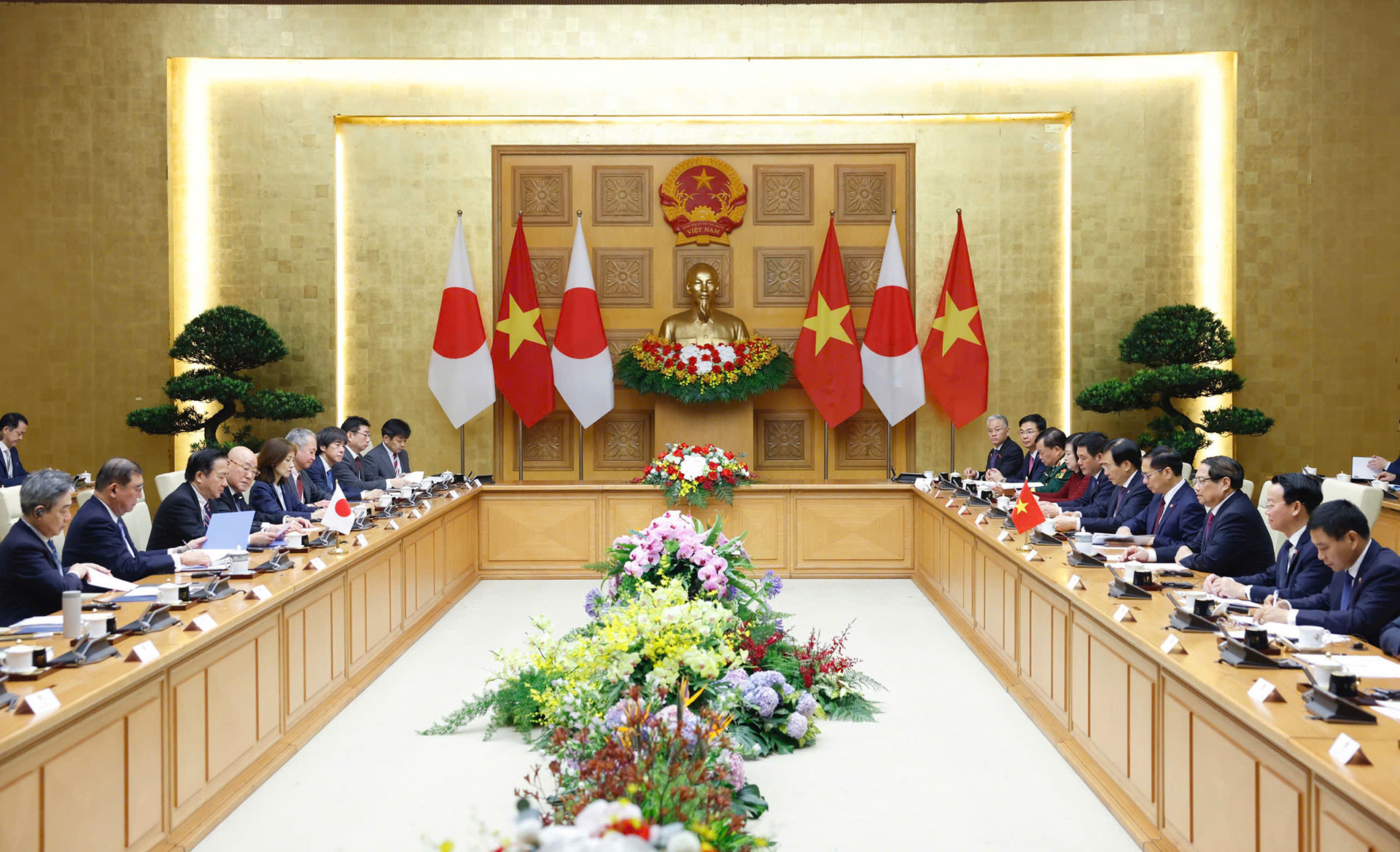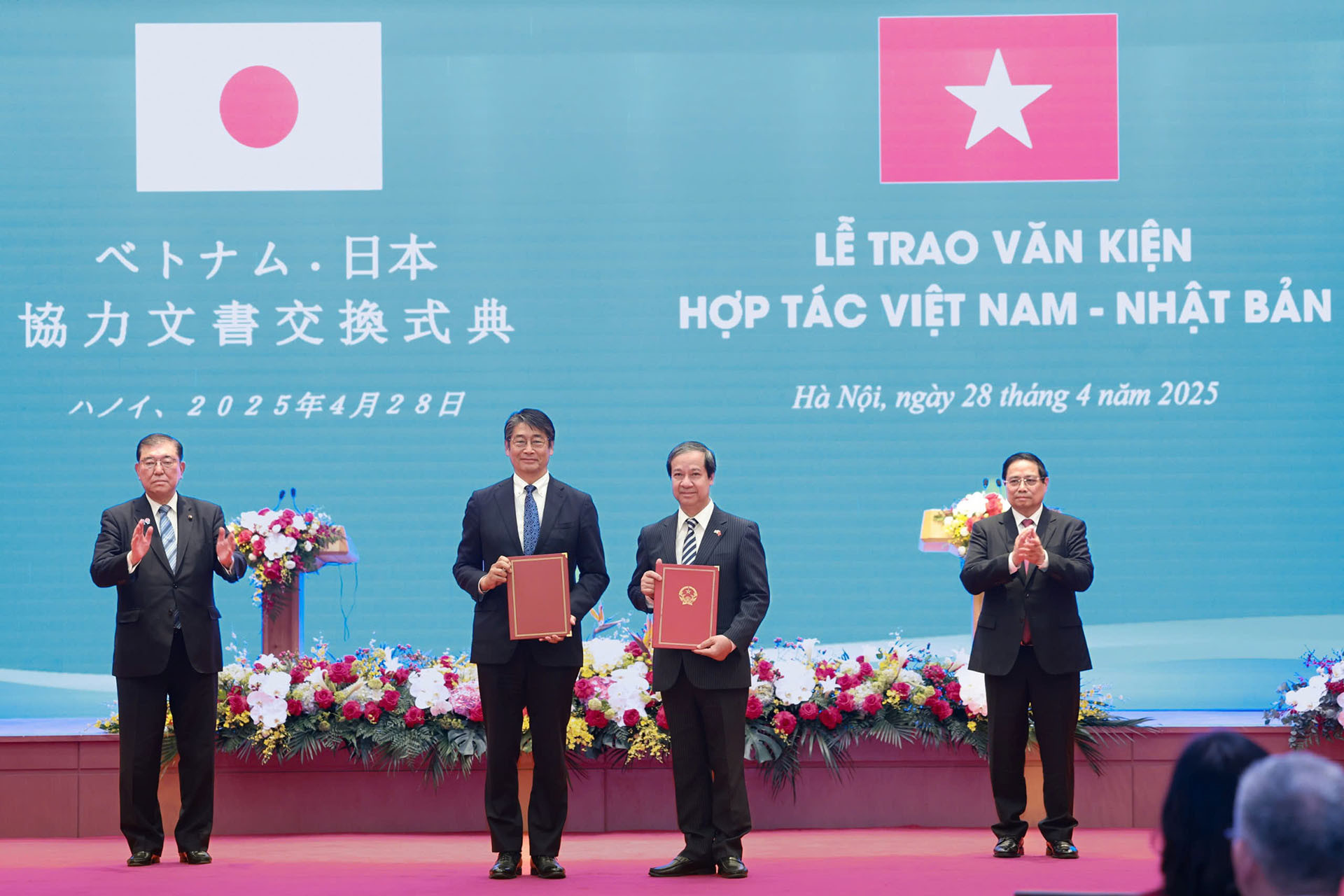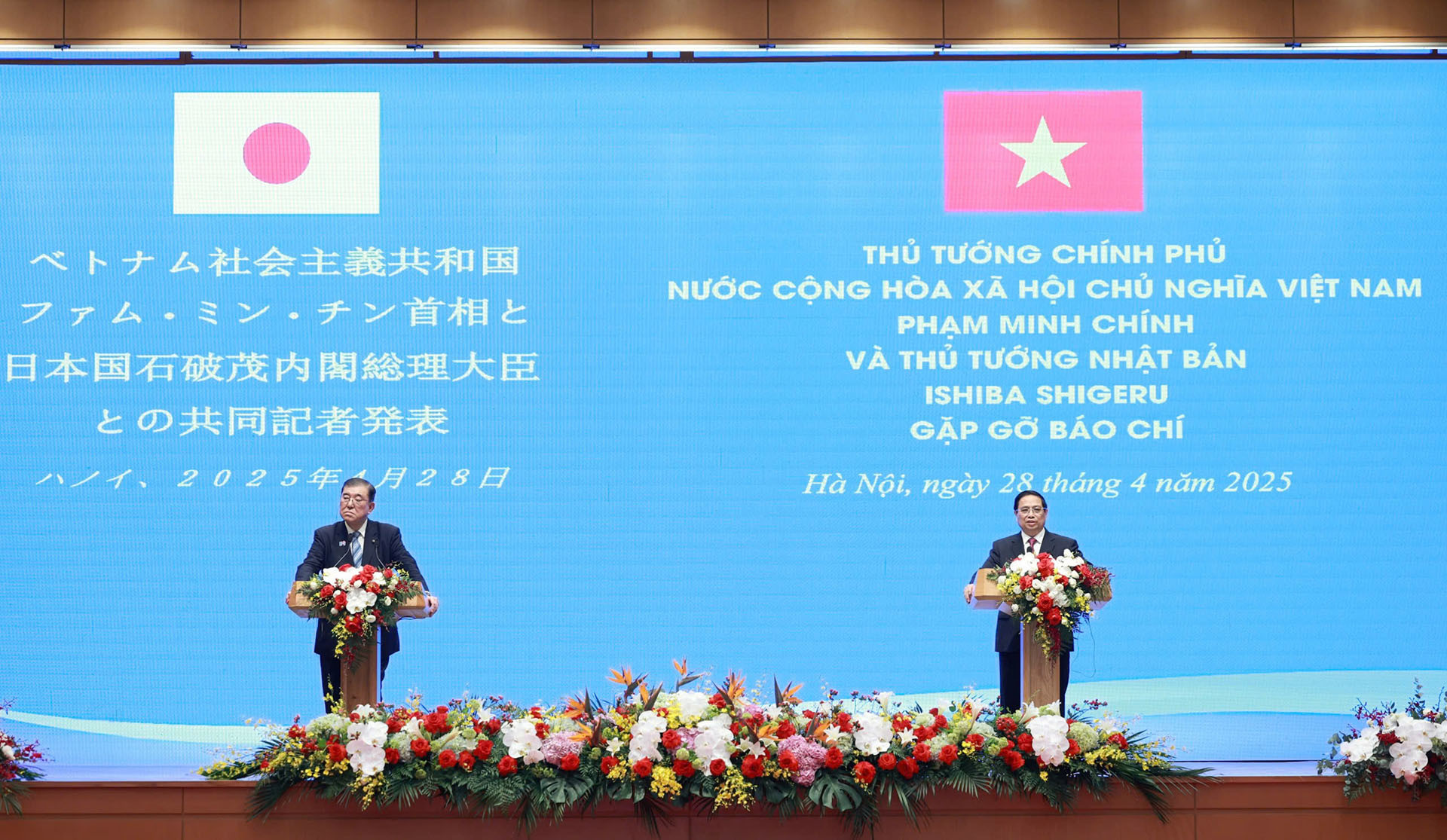During talks with Prime Minister Pham Minh Chinh this morning, Prime Minister Ishiba Shigeru praised the leadership of President Ho Chi Minh, whose enduring philosophy of peace and compassion he said was pivotal to Vietnam’s successful struggle for national liberation and unification.
Ishiba expressed deep admiration for Vietnam’s development since his first visit as a young parliamentarian 35 years ago.

Prime Minister Pham Minh Chinh reaffirmed that Vietnam considers Japan one of its most trusted and important partners, noting the ever-expanding potential for bilateral cooperation.
Prime Minister Ishiba emphasized that Japan will continue to support Vietnam in the new era, particularly in building an independent and resilient economy, advancing industrialization, modernization, and developing science and technology.
The two leaders agreed to strengthen political trust through regular high-level visits and exchanges and to expedite preparations for a future visit to Vietnam by the Emperor and Empress of Japan.
They also agreed to deepen economic cooperation, the cornerstone of the bilateral relationship, by fostering more substantial and sustainable economic linkages to support mutual development amid global economic challenges.
The leaders praised progress in key projects such as Ho Chi Minh City’s Metro Line 1 and agreed to accelerate landmark initiatives like the Vietnam-Japan University, the second campus of Cho Ray Hospital, and projects at the Vietnam Space Center.

They committed to promoting high-tech agricultural cooperation linked to food supply chain security, aiming to sign a medium- and long-term agricultural cooperation vision for 2025-2030 within this year.
Prime Minister Pham Minh Chinh affirmed Vietnam’s commitment to improving the investment and business environment to facilitate continued success for Japanese investors.
The two leaders agreed to establish science, technology, and human resource development as new pillars of cooperation, promoting joint efforts in digital economy, semiconductors, quantum technology, nuclear energy, IT, AI, green transition, and energy transition.
Prime Minister Pham Minh Chinh requested Japan’s continued support in training high-quality human resources, enhancing cooperation among research institutions, training centers, scientists, and businesses, and expanding scholarship programs for Vietnamese students and researchers.
He also urged support for the integration of Vietnam’s 70 tech enterprises and 5,000 IT engineers into Japan’s technology supply chains and digital transformation initiatives.
Prime Minister Ishiba confirmed Japan's commitment to supporting joint research projects and doctoral training in semiconductors through the Japan-ASEAN Science, Technology, and Innovation Cooperation Project (NEXUS).
Japan also plans to implement 15 energy transition projects worth over USD 20 billion under the Asian Zero Emission Community (AZEC) and the Asia Energy Transition Initiative (AETI).

The two sides agreed to strengthen cooperation in disaster response, climate change adaptation, local and cultural exchanges, labor cooperation, and people-to-people ties.
To facilitate the Vietnamese community in Japan, both countries will begin negotiations in 2025 on a bilateral social insurance agreement and work toward signing a memorandum of understanding on a new labor program, "Employment for Skills Development."
Prime Minister Ishiba appreciated the contribution of Vietnam’s over 600,000-strong community in Japan and pledged continued support. Both sides also agreed to continue discussions on simplifying procedures and expanding visa issuance to work toward the goal of 2 million mutual tourist visits annually.

Finally, the two leaders reaffirmed close coordination in regional and international forums, stressing the importance of maintaining an open, rules-based international order grounded in international law and the UN Charter.
Tran Thuong